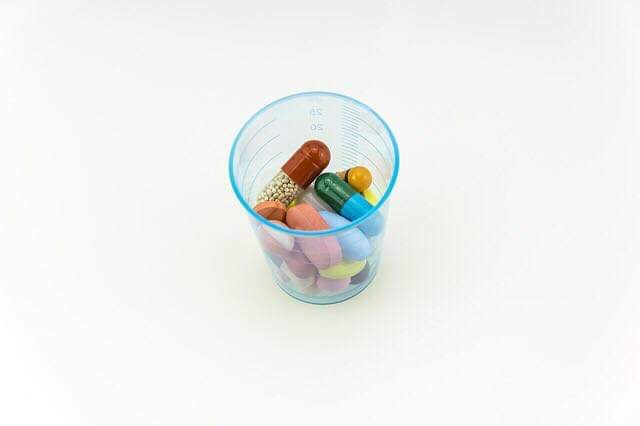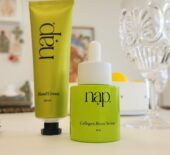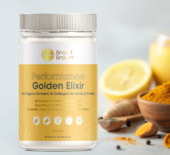You may have noticed an increase of collagen from the supplement shelf to a listed ingredient in your foods like protein bars, baked goods, coffee creamers and teas. Selling points attached to collagen from “improve your skin tone, reduce weight, improve joint health or muscle tone” but are any of these true?
To understand the promised health claims, you firstly need to understand collagen and its role in your body. Collagen is a protein whose main function is to act as connective tissue which makes up around 30% of all the protein content in your body.
When you eat collagen or take it as a supplement your body cannot use it as it’s whole form straight away and needs to break it down into its basic protein units of amino acids. Once in this form there is no guarantee the collagen will end up being collagen in your body as the amino acids may form another type of protein your body needs more.
To help protein to be created it needs enough vitamin C found in foods like strawberries, red capsicums, tomatoes or citrus fruit. Other helpers needed to make and protect collagen are zinc found in meat, poultry, fish, whole grains, beans, nuts and seeds and dairy and thirdly sulfur found in onions, broccoli and garlic.
Copper is also a key mineral involved in the formation of collagen. You need collagen for youthful looking skin, nails and hair. You can find copper in foods like beans, whole grains, pine nuts, yeast, organ meat and dairy.
So, are there any benefit at all in taking collagen?
Current research is limited but promising for treatment of conditions like arthritis. Keen for youthful skin? Some studies, although most with small numbers or subjective have found taking collagen improved skin tone and reduced appearance of cellulite. In terms of weight loss and improved muscle tone the research is weak at best and most results would be found by eating enough protein.
There may be benefit in taking collagen for wound healing or to improve your bone density. To promote joint health and restructure of the connective tissue, research suggests that 15 grams of collagen peptide supplementation daily to be an optimal amount.
To enhance the effects of collagen supplementation on joint health and recovery, including this dose with a source of vitamin C, 30-60 minutes before your recovery session is optimal. When your ligament is being moved during recovery physiotherapy and movements it acts like a sponge, taking in and using the nutrients available in your blood.
For general health and wellness you do not need to take a collagen supplement to achieve your collagen needs as there are food sources of collagen. Food sources of collagen include:
- Any meat that contains muscle aka not organ meat
- Fish
- Egg whites
- Spirulina
- Bone broth
A full lifestyle approach is always best and it may be best, instead of focusing on taking collagen to focus on protecting the health of the collagen you have already. Eating too much sugar in your diet can damage your collagen as the sugar binds to the collagen and forms advanced glycation end products which ultimately causes your skin to sag as the collagen loses its flexibility and strength. Are you a smoker or spend too much time in the sun? These factors are changeable habits which also damage your collagen.
Take home message: Achieving youthful skin or joints which functioned the way they use too may not be as simple as popping a collagen pill. Your body is smart in many ways and it may be best advice to save your money and focus on a balanced diet to meet your individual protein needs from food.








